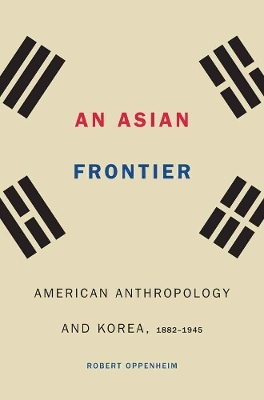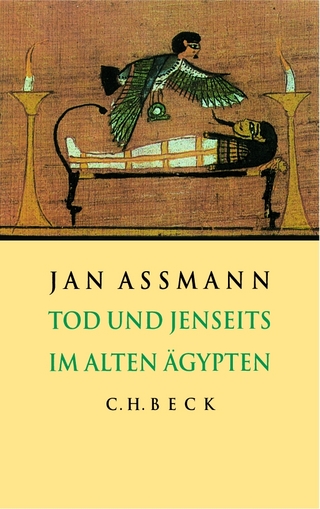
An Asian Frontier
American Anthropology and Korea, 1882–1945
Seiten
2016
University of Nebraska Press (Verlag)
978-0-8032-8561-3 (ISBN)
University of Nebraska Press (Verlag)
978-0-8032-8561-3 (ISBN)
Focuses on the dialogue between the American anthropological tradition and Korea, from Korea’s first treaty with the United States to the end of World War II, with the goal of rereading anthropology’s history and theoretical development through its Pacific frontier.
In the nineteenth century the predominant focus of American anthropology centered on the native peoples of North America, and most anthropologists would argue that Korea during this period was hardly a cultural area of great anthropological interest. However, this perspective underestimates Korea as a significant object of concern for American anthropology during the period from 1882 to 1945—otherwise a turbulent, transitional period in Korea’s history. An Asian Frontier focuses on the dialogue between the American anthropological tradition and Korea, from Korea’s first treaty with the United States to the end of World War II, with the goal of rereading anthropology’s history and theoretical development through its Pacific frontier.
Drawing on notebooks and personal correspondence as well as the publications of anthropologists of the day, Robert Oppenheim shows how and why Korea became an important object of study—with, for instance, more published about Korea in the pages of American Anthropologist before 1900 than would be seen for decades after. Oppenheim chronicles the actions of American collectors, Korean mediators, and metropolitan curators who first created Korean anthropological exhibitions for the public. He moves on to examine anthropologists—such as Aleš Hrdlicka, Walter Hough, Stewart Culin, Frederick Starr, and Frank Hamilton Cushing—who fit Korea into frameworks of evolution, culture, and race even as they engaged questions of imperialism that were raised by Japan’s colonization of the country. In tracing the development of American anthropology’s understanding of Korea, Oppenheim discloses the legacy present in our ongoing understanding of Korea and of anthropology’s past.
In the nineteenth century the predominant focus of American anthropology centered on the native peoples of North America, and most anthropologists would argue that Korea during this period was hardly a cultural area of great anthropological interest. However, this perspective underestimates Korea as a significant object of concern for American anthropology during the period from 1882 to 1945—otherwise a turbulent, transitional period in Korea’s history. An Asian Frontier focuses on the dialogue between the American anthropological tradition and Korea, from Korea’s first treaty with the United States to the end of World War II, with the goal of rereading anthropology’s history and theoretical development through its Pacific frontier.
Drawing on notebooks and personal correspondence as well as the publications of anthropologists of the day, Robert Oppenheim shows how and why Korea became an important object of study—with, for instance, more published about Korea in the pages of American Anthropologist before 1900 than would be seen for decades after. Oppenheim chronicles the actions of American collectors, Korean mediators, and metropolitan curators who first created Korean anthropological exhibitions for the public. He moves on to examine anthropologists—such as Aleš Hrdlicka, Walter Hough, Stewart Culin, Frederick Starr, and Frank Hamilton Cushing—who fit Korea into frameworks of evolution, culture, and race even as they engaged questions of imperialism that were raised by Japan’s colonization of the country. In tracing the development of American anthropology’s understanding of Korea, Oppenheim discloses the legacy present in our ongoing understanding of Korea and of anthropology’s past.
Robert Oppenheim is an associate professor of Asian studies and anthropology at the University of Texas at Austin. He is the author of Kyongju Things: Assembling Place.
List of FiguresSeries Editors’ IntroductionAcknowledgmentsNote on Editorial MethodIntroduction: Tracings of Discipline and Shadows of Area1. Anthropological Collecting Networks in Late Nineteenth-Century Korea2. Ceramic Economies3. From China in America to Korea in Chicago4. Orientalist against Orientalism5. The Anthropologist without Qualities6. Worlding Korea from Without and Within7. Interwar Asymmetries of Race and Anti-imperialismConclusion: LegaciesSource AcknowledgmentsNotesBibliographyIndex
| Erscheinungsdatum | 22.05.2016 |
|---|---|
| Reihe/Serie | Critical Studies in the History of Anthropology |
| Zusatzinfo | 7 illustrations |
| Verlagsort | Lincoln |
| Sprache | englisch |
| Maße | 152 x 229 mm |
| Themenwelt | Sachbuch/Ratgeber ► Geschichte / Politik ► Allgemeines / Lexika |
| Geisteswissenschaften ► Geschichte ► Regional- / Ländergeschichte | |
| Geschichte ► Teilgebiete der Geschichte ► Kulturgeschichte | |
| Sozialwissenschaften ► Ethnologie | |
| Sozialwissenschaften ► Soziologie | |
| ISBN-10 | 0-8032-8561-2 / 0803285612 |
| ISBN-13 | 978-0-8032-8561-3 / 9780803285613 |
| Zustand | Neuware |
| Haben Sie eine Frage zum Produkt? |
Mehr entdecken
aus dem Bereich
aus dem Bereich
der stille Abschied vom bäuerlichen Leben in Deutschland
Buch | Hardcover (2023)
C.H.Beck (Verlag)
23,00 €


